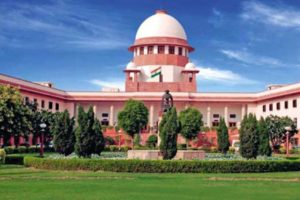By Rupin Chopra and Nishtha Das
On April 15, 2020, the Hon’ble Supreme Court of India in the case of Rajasthan State Transport Corporation Ltd. & ors. V. Smt. Mohani Devi & anr.[1] determined the scope of payment of gratuity upon termination of employment. The Hon’ble Court held that gratuity under the Payment of Gratuity Act, 1972 shall be payable on resignation from employment after 5 years of continuous service.
Brief facts of the case –
- The Hon’ble Supreme Court, in this case is addressing the appeal filed by the Rajasthan State Transport Corporation Ltd. (hereinafter referred to as ‘appellants’).
- The appellants had filed the said appeal against the Rajasthan High Court judgment, wherein the Hon’ble Court had allowed the writ petition filed by the wife of a deceased employee claiming the retiral benefits.
- The deceased employee was working with the appellants and after his voluntary retirement was not accepted by the appellants, hence he rendered his resignation.
- After the death of the employee, his wife (hereinafter referred to as ‘respondents’) approached the High Court praying for grant of retiral benefits which were to be granted to her husband. The Hon’ble High Court directed the appellants to treat it as voluntarily retirement and release the retiral benefits accordingly.
Submissions made by the appellants –
The appellants submitted that as the deceased employee had submitted his resignation he was already provided with the service benefits as accrued upon retirement, therefore he was not entitled to other retiral benefits, i.e. gratuity.
Supreme Court Payment of Gratuity on Termination
- The Court aligned with the respondents held that Section 4(1)(b) of the Payment of Gratuity Act, 1972 provides that the gratuity shall be payable if the termination of employment is after 5 years of continuous service and such termination would include resignation as well.
- Widening the scope of the word ‘termination’ the Court observed that termination would include resignation as well and hence the person shall be provided with all retiral benefits as to be provided on termination.
Though the term ‘termination’ has not been defined under the Act, its purview can be understood under Section 4(1) of the Payment of Gratuity Act, 1972 which reads below:
“Gratuity shall be payable to an employee on the termination of his employment after he has rendered continuous service for not less than five years,—
(a) on his superannuation, or
(b) on his retirement or resignation, or
(c) on his death or disablement due to accident or disease:
Provided that the completion of continuous service of five years shall not be necessary where the termination of the employment of any employee is due to death or disablement: [Provided further that in the case of death of the employee, gratuity payable to him shall be paid to his nominee or, if no nomination has been made, to his heirs, and where any such nominees or heirs is a minor, the share of such minor, shall be deposited with the controlling authority who shall invest the same for the benefit of such minor in such bank or other financial institution, as may be prescribed, until such minor attains majority.]”
- In view of the above, the Court directed the Appellants to pay the gratuity as calculated till the date of the matter to be paid to the Respondents within four weeks’ time.
The above decision of the Hon’ble Supreme Court clears the air on understanding of resignation covered under the term ‘termination’ of an employee which has not been defined under the Payment of Gratuity Act, 1972. The said decision is expected to bring radical changes towards understanding the payment of gratuity structure and its applicability when an employee voluntarily resigns but completes five years of continuous service.
Related Posts
India: Validity of Non-Compete Clause in an Employment Agreement
India: Wage Code, 2019 introduces web-based Labour inspection
Labour Laws in India
[1] Civil Appeal No. 2236 of 2020


